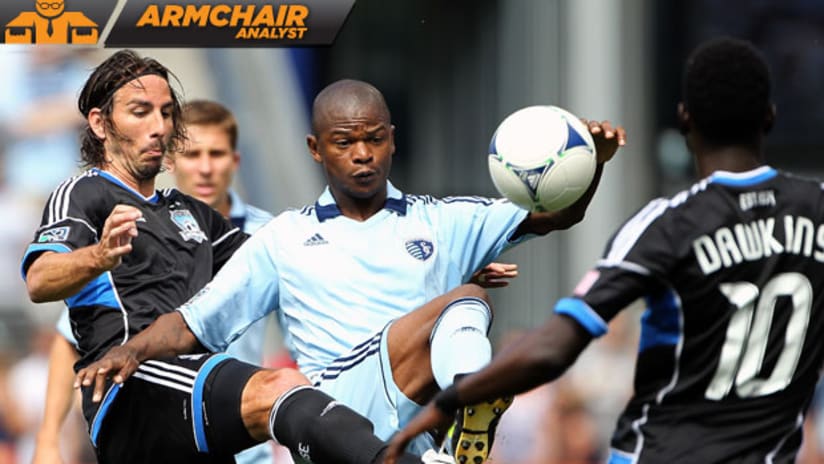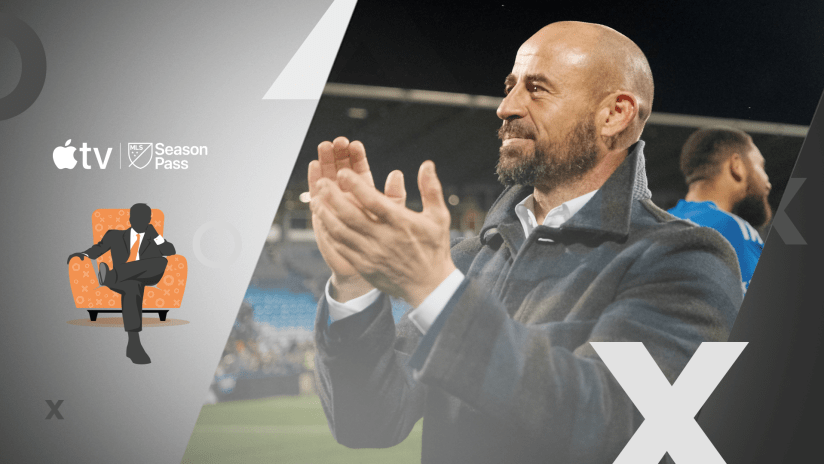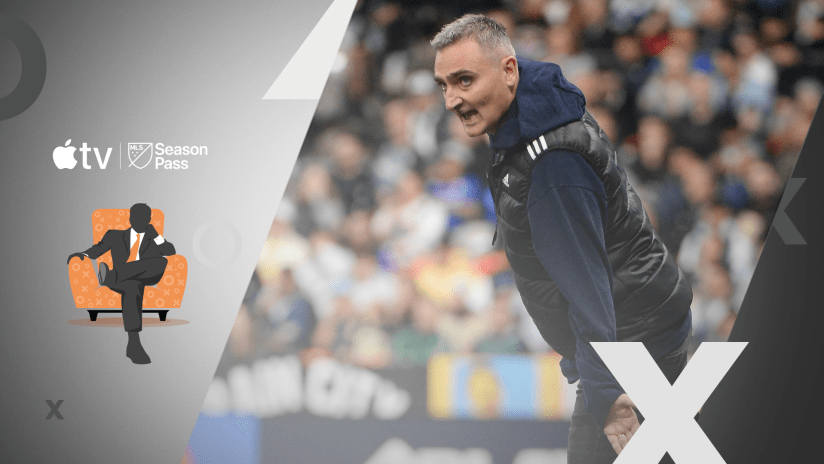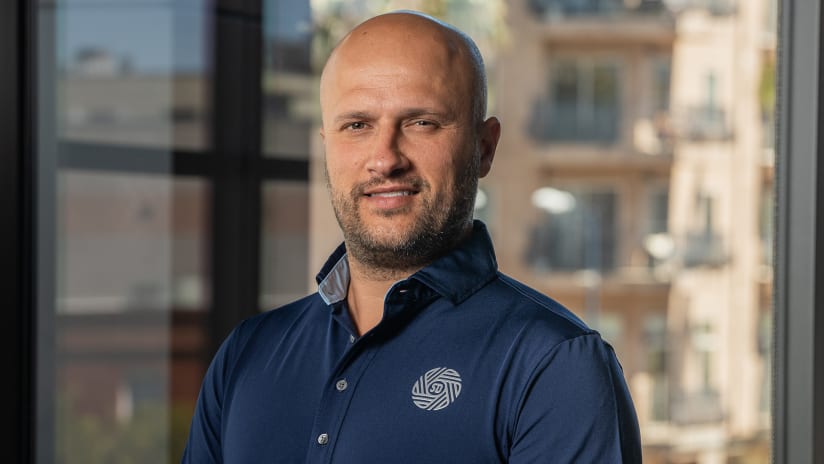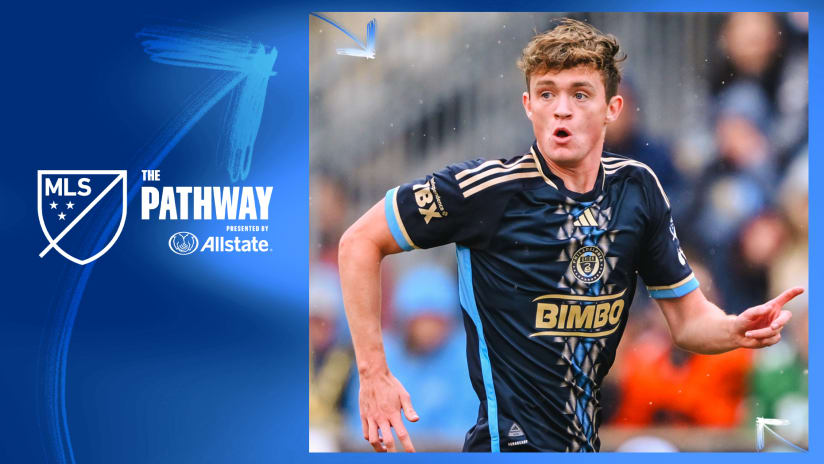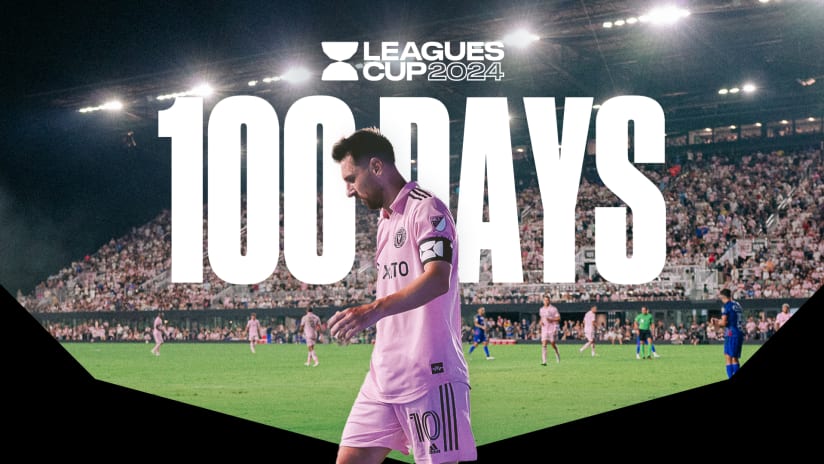There is a philosophical concept called “embodied cognition,” and it is the one thing I remember from a class I took during my junior year of college. It was one of those classes taught by an enthusiastic, intelligent young professor who encouraged the students to argue past each other like it was a presidential debate.
In other words, it was a complete nightmare. The four people who’d taken Rhetoric 101 dominated while the rest of us huddled at our desks, trying to avoid eye contact and occasionally dozing off.
So I didn’t learn much, and I expect no one else did, either.
But I did learn something. Or at least I think I did, which my philosophy professor (and Descartes) would say is pretty much the same thing.
Embodied cognition is the thesis that your physical state of being exerts profound influence on your state of mind. If you’re forcing yourself to smile, you will perceive happy emotions much more readily than if you were forcing yourself to frown. If you’re stretching, you will be more open to new ideas and thoughts.
If you’re playing a wide open, vertical 4-4-2 with pacy wingers, you will become more direct and relentless in attack. If you play a 4-3-3 crammed with ball-winning midfielders, you will get your goals by breaking the other team to your will.
See? Even Kant can be explained by soccer. And my college education wasn't a total waste.
My point is that the physical shape of the formation a given team puts out will have a profound impact on their attitude both with and without the ball, and the 2012 MLS season has been a pretty stark object lesson in that.
Let’s start with the San Jose Earthquakes, this year’s Supporters’ Shield winners and truly one of the great regular-season teams ever to lace ‘em up. They’ve taken a lot of flack for what has been termed an overly physical approach to the game, but nobody – anywhere, ever – can say they’ve been boring.
That wide-open, vertical 4-4-2 has made for some of the most memorable back-and-forth play in league history, as well as 71 goals and counting. And even when they've come up against a team that plays a similar defensive structure, they end up looking vastly different in attack.
On the left are San Jose's "Key Passes" from this past weekend's 2-2 draw with the LA Galaxy – passes that led directly to a shot on goal. On the right are the Galaxy's Key Passes from the same game:
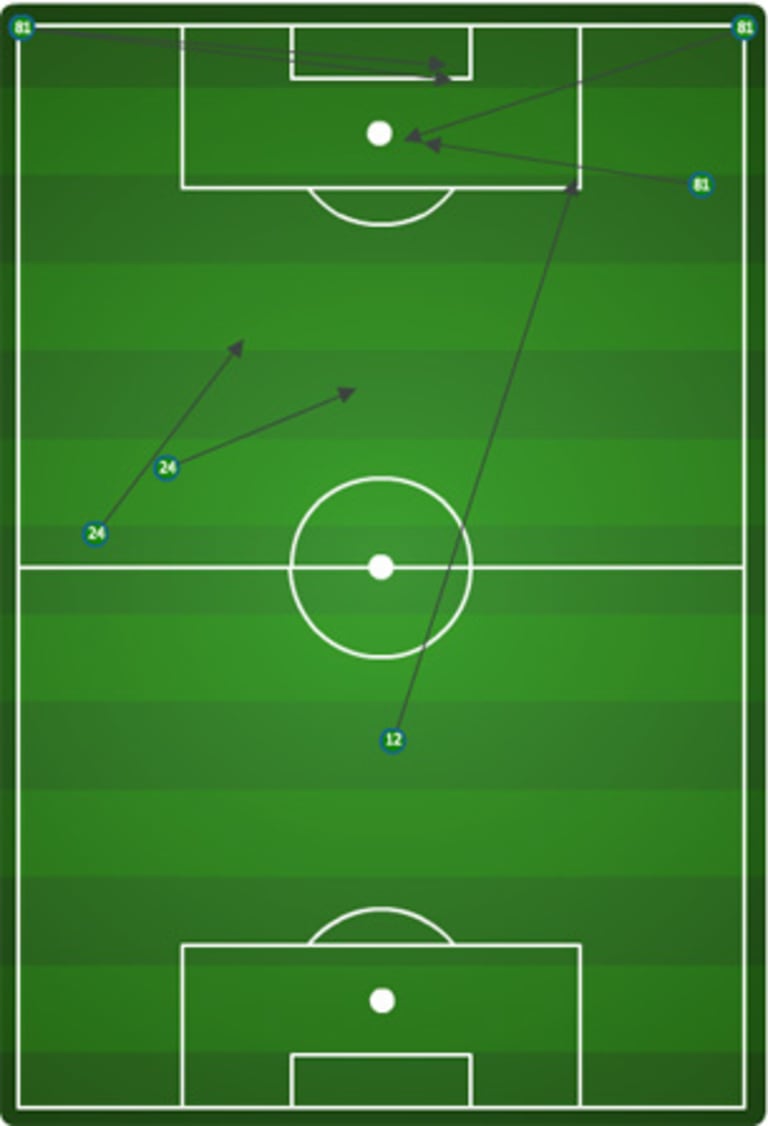
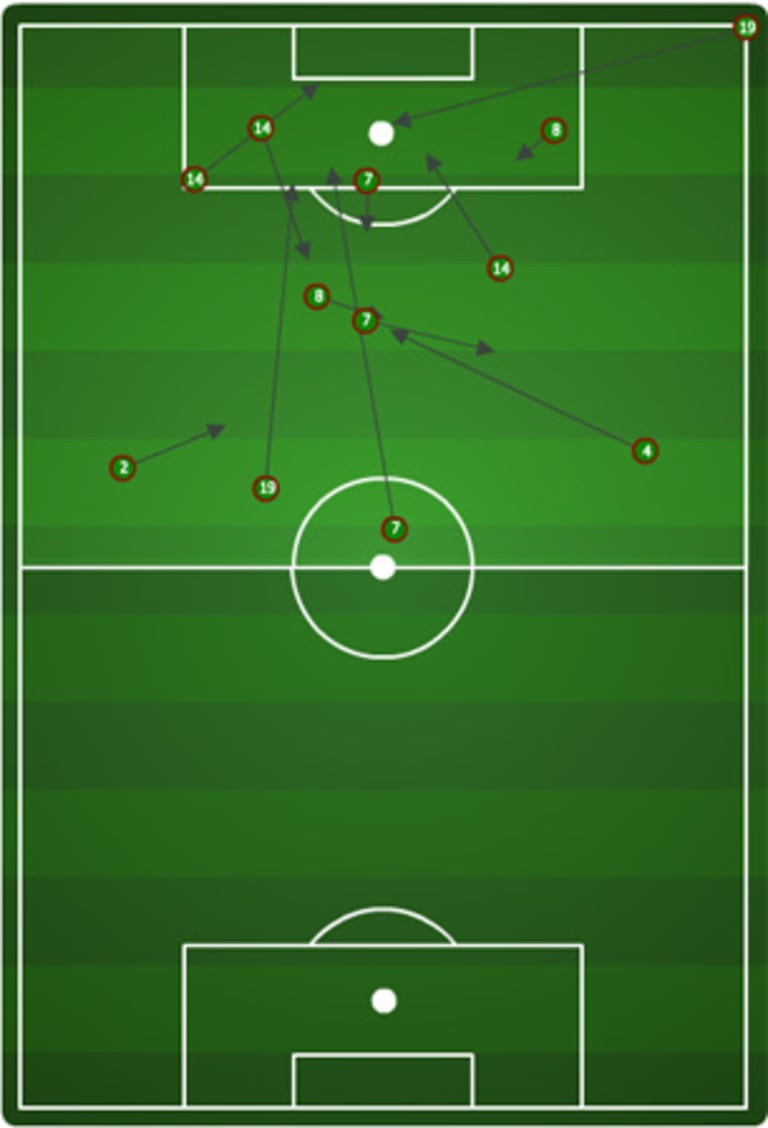
Two things are apparent: You can get into the middle of San Jose's defense and have a rip. That's been their weakness all season, and LA exploited it neatly, connecting on three through balls up the gut in the first 20 minutes alone, as well as a number of clever lay-offs and combinations.
The other is that San Jose are mostly content to give that up and rely on their backline's coordination and Jon Busch's reading of the game. They don't force you to play a particular way, only to deal with how they play.
And there's the tricky part for opponents: The way San Jose plays is entirely predictable on the ball. Nothing is remarkable about it. It's the coordination of their strikers off the ball – Chris Wondolowski, Alan Gordon and Steven Lenhart – that has made them the league's best attacking team in more than a decade.
Compare that to 2012's other stand-out team, the Eastern Conference and US Open Cup-winning Sporting KC side that have been noted all year for their high, vicious pressure. Their entire modus operandi is to force you to play their game, and against Philadelphia on Wednesday, that's exactly what happened.
The Union are a team that want to combine, string short passes together and move the ball up the field as a unit, then get into the box before having a go.
On the left is the graph of their completed passes in the 2-1 loss. Exactly zero happened in the box. On the right is the graph of SKC's interceptions, tackles won, clearances and recoveries.
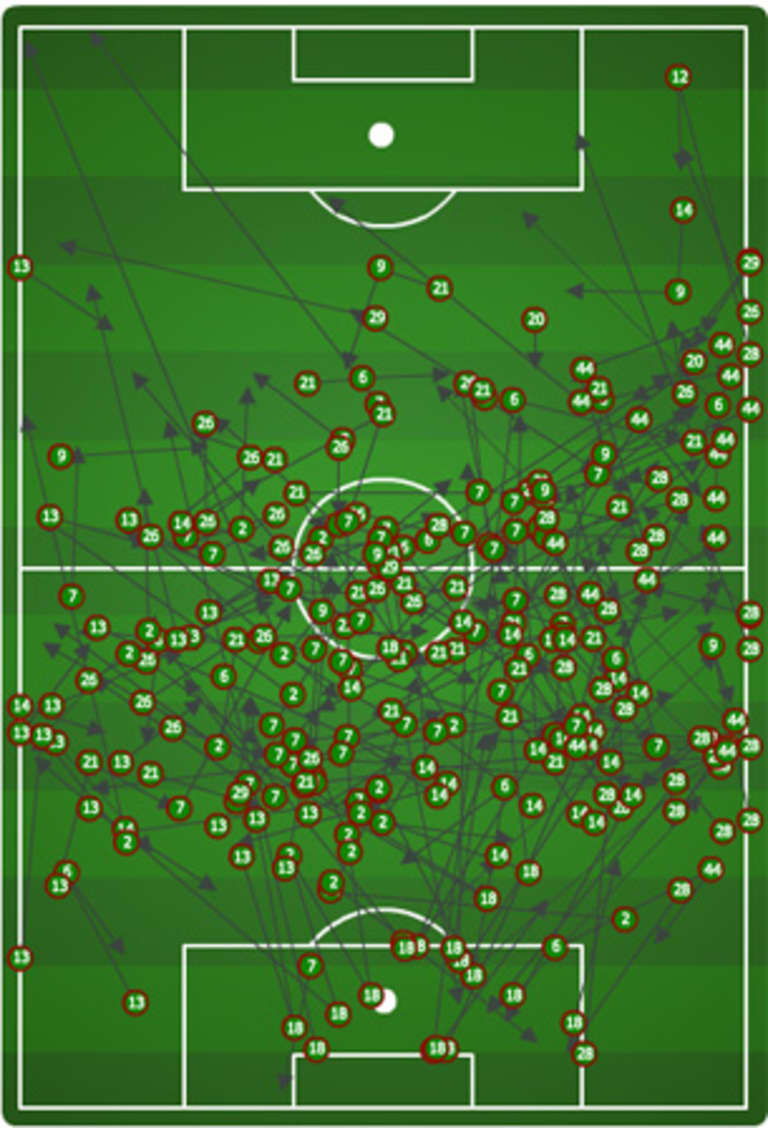
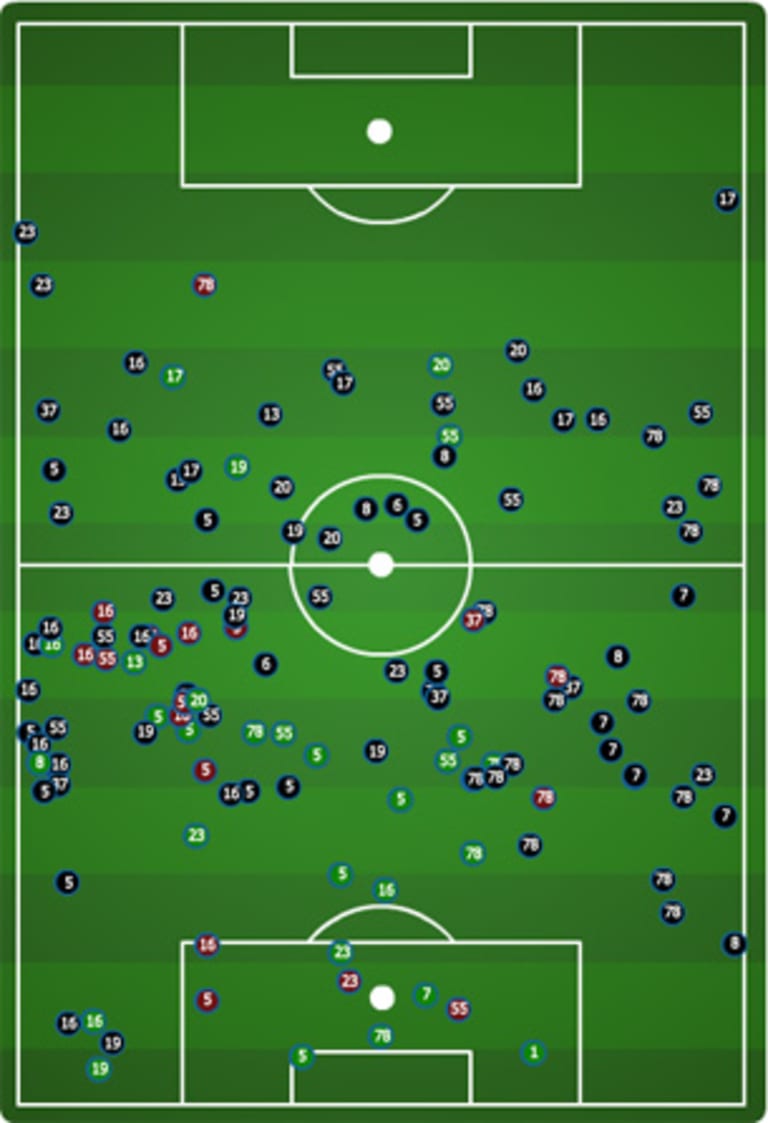
Basically, if you're lucky enough to get within 45 yards of goal, they are going to swarm you. You have to deal with how they play, and you have to either punish their overpursuit (not easy), or produce a moment of 1-vs.-1 brilliance, which is exactly what Danny Cruz did to draw a penalty early in the second half.
KC imposed their will on Philadelphia, even after John Hackworth made a very clever switch to a 4-4-2 for the second half. It's what Sporting have done all season, and as per usual, they got their game-winning goal off of that relentless defensive pressure.
The regular season comes to a close this weekend, and it's been a remarkably good one. Goals are up, comeback wins are at an all-time high and variation in terms of scheme and tactical approach is pretty much off the charts. San Jose and Sporting have shown as much.
And they've also reinforced a life lesson that Kant never really got around to: There's always more than one right way to do something. You just have to commit to it.
Matthew Doyle writes the Armchair Analyst column for MLSsoccer.com

